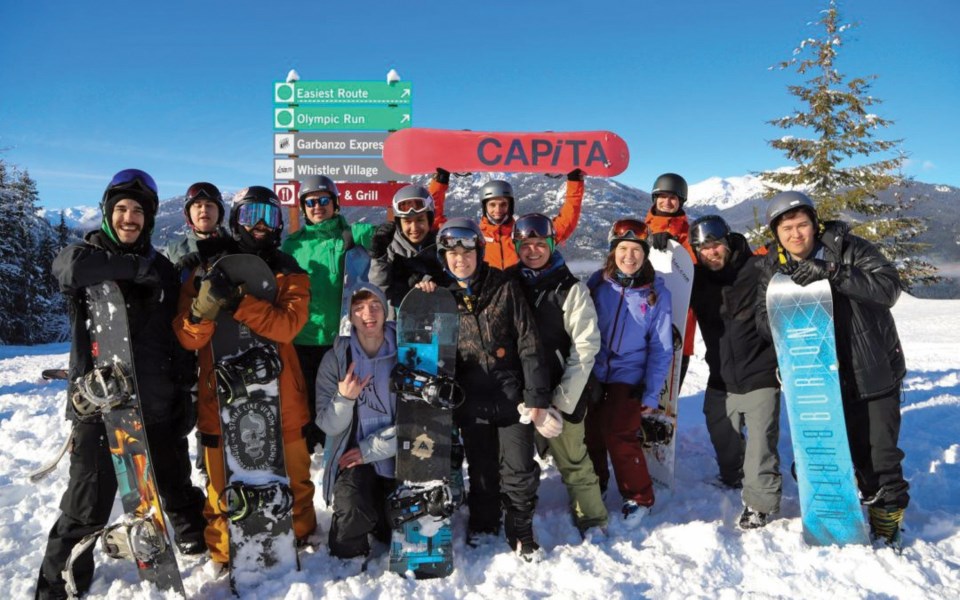the staff at Zero Ceiling, a Whistler-based non-profit dedicated to reducing youth homelessness, has long known the work they do is important. But that became all the more apparent recently as the COVID-19 crisis added uncertainty for program participants who rely on the organization for support.
"Those that are considered vulnerable in our society are most impacted by this pandemic, and to us, we want to make sure that we help continue to be a part of the solution," said co-executive director Sean Easton during the non-profit's AGM, held virtually on April 14. "It's forced us to ask: What more can we do?"
In many ways, Zero Ceiling has already grown its efforts, doubling in staff in the past year and ramping up its advocacy at the provincial level, even consulting on an early draft of "Untapped Talent," a business-to-business guide developed in conjunction with WorkBC and the Ministry of Social Development aimed at achieving more inclusive hiring practices.
But in the face of COVID-19, the organization is looking to support even more at-risk youth by increasing the number of participants in its Work 2 Live program, which provides supportive employment, housing and wraparound services for a calendar year.
"Our plan is to expand over this next year from having eight work placements and eight beds to bump that up to 12, with a new partner that is willing to provide housing and employment to four new individuals," said Easton, who added that the non-profit still has to finalize the agreement before it can reveal the new partner.
Historically, Work 2 Live participants are given full-time employment and staff housing at Whistler Blackcomb, but with the mountain closing in mid-March due to the pandemic, each of the current eight participants was laid off. Easton said the organization wouldn't necessarily wait for Whistler Blackcomb to reopen to secure new employment for participants and has already had interested businesses reach out.
"It was rather shocking, quite honestly," wrote program participant Vera in an email, who asked that her last name be withheld. "I feel like I went through various stages of reacting—at first I was terrified! All of a sudden my job was gone, my plans were destroyed and my new-found passion, snowboarding, was suddenly inaccessible? I felt heartbroken and very uncertain."
Vera said her fears were quelled after speaking with a support worker who "reminded me to be the calm in the eye of the storm." She also touched on how the participants, who have been allowed to remain in staff housing for the foreseeable future, have supported each other through the crisis.
"My roommates and I have forged a stronger bond that can only happen when you spend hours upon hours together every day," she said. "Holding space for connection and authentic expression has been key to deepening the friendships we have. I know I have broken down into tears countless times, yet my roommates have helped me get up and put a smile on my face again."
In addition to landing a new employment and housing partner, Zero Ceiling has also joined the Friendly Landlord Network, a Vancouver non-profit that works with both public and private sector partners to secure housing for youth and families connected to government care. Zero Ceiling saw its first placement in April, at a home in Pemberton.
Like other non-profits, Zero Ceiling has seen its revenue stream impacted by COVID-19, said co-executive director Chris Wrightson.
"We really recognize that our donors, especially here in Whistler, have been extremely hard hit as well," she said. "We just really appreciate your generosity and any support you can keep giving at this time. It really helps us to keep doing the work we do."
The organization is hopeful its landmark annual fundraiser, the Whitewater Rodeo, usually held in June, will go ahead in some form this year. It is also counting on significant funding from the Ministry of Advanced Education and Skills Training that it first secured in October to continue as planned.
"Really, we just want to make sure that we're working together as a community to best support each other," Easton said of the collective community effort to get through the pandemic. "In times of crisis, there is opportunity, and we rely on innovation."




